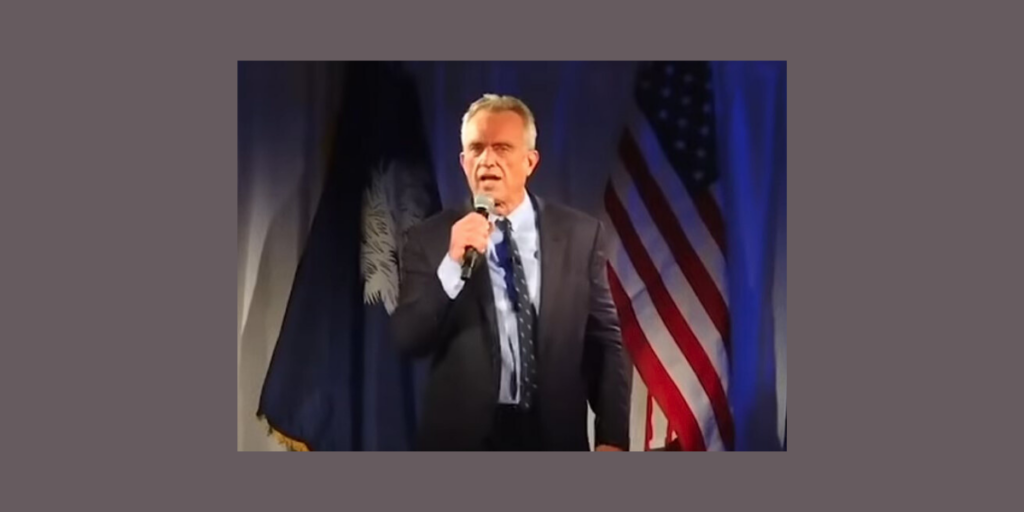
Eight Questions for Robert F. Kennedy Jr.
By: Michael J. New, originally published November 18, 2024, National Review
President-elect Trump’s nomination of Robert F. Kennedy Jr. to be Secretary of the Department of Health and Human Services (HHS) has generated some concerns in pro-life circles. Indeed, a key reason why many pro-lifers supported Trump was that they hoped he would appoint pro-lifers to important executive branch positions. Unfortunately, during his political career, Robert F. Kennedy Jr. has never identified as pro-life. Many pro-lifers are unsure whether he would prioritize pro-life policy goals as HHS Secretary.
It would be helpful if Robert F. Kennedy Jr. could answer the following eight questions for pro-life groups and pro-life senators. They deal with some of the most important pro-life policy issues and policy goals that he will consider if he is confirmed as HHS Secretary.
A major reason why the U.S. abortion rate has increased since 2017 is that FDA policy regulations on chemical abortions have become more permissive. In 2016, the FDA extended the limit for chemical abortion from seven to ten weeks and reduced the number of in-person visits from three to one. They did so without properly studying the combined public health impact of these rule changes. As HHS Secretary, would you support revoking these policy changes?
The FDA under the Biden administration continued the Covid-era practice of allowing women to obtain chemical abortion drugs through the mail. Chemical abortions could be fatal to women with ectopic pregnancies and could pose serious health risks to women whose pregnancies are past the first trimester. As HHS Secretary, would you instruct the FDA to require an in-person medical exam for women seeking chemical abortions?
As HHS Secretary, would you require that medical professionals report complications arising from chemical abortions? The FDA dropped this requirement in 2016.
HHS funds the Teen Pregnancy Prevention Program (TPPP). It awards federal grants to local teen pregnancy-prevention programs that emphasize contraceptive use rather than limiting sexual activity. During both the Obama and the Biden administrations, multiple analyses found that only a very small fraction of these programs actually reduced teen pregnancy rates. What would you do as HHS Secretary to ensure TPPP grants are funding programs that have a track record of success?
The HHS under the Biden administration deprioritized conscience rights in numerous ways. Recent HHS budgets have failed to prioritize conscience rights funding. The Biden administration eliminated HHS’s Conscience and Religious Division. Additionally, the HHS Office for Civil Rights (OCR) can no longer enforce conscience protections under the Religious Freedom Restoration Act. What would you do to make conscience protection a priority as HHS Secretary?
In 2019, HHS under the Trump administration instituted the Protect Life Rule, which prevented Title X grantees from co-locating with abortion facilities or doing abortion referrals. Unsurprisingly, under the Biden administration HHS rolled back the Protect Life Rule. As HHS secretary, would you support reinstating it?
Planned Parenthood’s most recent annual report indicates that they received nearly $700 million in government grants, contracts, and Medicaid reimbursements. Since money is fungible, these funds indirectly subsidize abortion. As HHS secretary, what would you do to reduce the amount of government funding going to Planned Parenthood?
As HHS secretary, would you strengthen abortion reporting requirements so that all states have to report aggregate data on the demographics of women obtaining abortions, the gestational age at which abortions were performed, the type of abortion procedures used, and complications and deaths resulting from abortions? Would you consider withholding state Medicaid funds from states, such as California and Maryland, that refuse to submit abortion data to the CDC?
Answering these questions could go a long way toward assuaging pro-life concerns. Robert F. Kennedy Jr. could demonstrate that he understands pro-life concerns about a range of issues, including conscience rights, chemical abortions, and abortion reporting requirements. He could also nicely demonstrate how he could use his role as HHS secretary to take powerful steps toward building a culture of life.
Michael New is an assistant professor of practice at the Busch School of Business at the Catholic University of America and a senior associate scholar at the Charlotte Lozier Institute.
